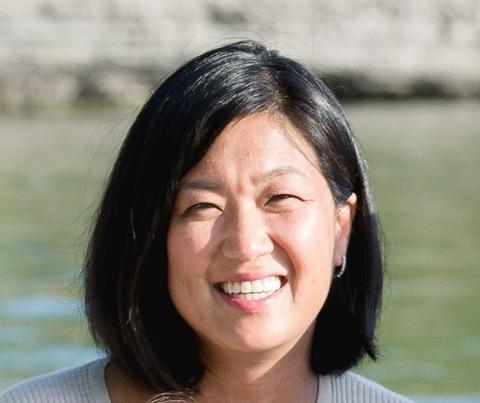
Editorial Assistant Eliza Ives' interview with Jenny Hwang about her essay "Silkworms”, which won the Fiddlehead 2022 Creative Nonfiction Prize
Eliza Ives: Congratulations on winning the 2022 Fiddlehead Creative Nonfiction Contest! I enjoyed "Silkworms" and was impressed, first of all, by its skillful negotiation of time. The piece flows very naturally, touching on significant moments from the past within the frame of the pandemic. It's fairly short, but the temporal scope gave me the impression that I had read a much longer work. What was your approach to composition? Did you move parts around, or was the writing process more linear?
Jenny Hwang: Thank you so much, Eliza. I started with wanting to write on top of my grandmother's composition, so the writing (and researching) about silkworms and exploring her composition came first. It was several months later when I realized that there was a bigger story I could tell, and started to frame the silkworms piece around my own life's timeline with the beginning and end of the pandemic, memories of my upbringing, and the discovery of my grandmother's writing in between.
EI: Thank you, Jenny, I’m always curious about how a finished piece came together, and I’m interested in the bigger story you mention. The elements all seemed concerned with various kinds of erasure — of women, of emotion, of the past, of culture and of language. Was resistance to erasure a part of your motivation in writing?
JH: It started at first as a way to recognize and understand my own voice. To be seen, if only by myself - my eyes, a witness to my hand, writing my thoughts onto paper. As I begin to dig further into grandmother's writing about the Korean war and discover how her voice goes against the western narrative of the war that I have been brought up with, I'm beginning to experience writing as a powerful act of resistance against oppression in its various guises. Writing has been a way to slowly rip the tape over my mouth and begin to speak.
I also would like to mention here how thankful I've been for organizations that passionately work to make space for voices that are not normally heard; I really admire Firefly Creative Writing's Thursday BIPOC writing space, Stories of Ours, and Living Hyphen to name a few. All of their work is resistance to erasure.
EI: You quote your grandmother as describing the silkworm as a creature which sacrifices everything, gaining nothing in return, and yet also as a “creature to be emulated.” Her writing is about acceptance and yet — also — in its very act constitutes resistance. I wonder if you agree?
JH: Yes, she had so much courage to pen her truths and questions onto paper, and try not let them disappear. Her writing has given me a sense of urgency to continue on with what she started.
EI: What other essays or books have been important to you?
JH: Some recent books that have been important to me are Ocean Vuong’s beautiful and heartbreaking On Earth We Are Briefly Gorgeous, which still haunts me, and the English translation of South Korean novelist Han Kang’s The Vegetarian which felt like someone was whispering into my ear in solidarity from the other side of the ocean. Reading “Viet Thanh Nguyen Reveals How Writer’s Workshops Can Be Hostile” essay in The New York Times and Cathy Park Hong’s book of essays Minor Feelings have also been important to me, in reframing what my writing might be, and not should be. I am thankful for every voice I read that makes me gasp in delight to know that I’m not alone.
EI: Thanks for these wonderful recommendations! I’m sure your essay will speak to many readers and make them feel less alone. Has winning The Fiddlehead’s Creative Nonfiction prize encouraged you to continue in the personal essay genre? Are you currently finding space to write? If so, are there any projects you could share?
JH: Yes, this prize has been so deeply encouraging for me to continue writing in this genre. I am currently working on a collection of essays that weaves through my family's experience in diaspora, and my grandparents' experience in war and colonialism. I want to explore what comes down through generations and how we might reclaim history through our own eyes to move us forward.
EI: Congratulations again, Jenny! And thank you so much for answering these questions. I look forward to reading more of your work.
Jenny Hwang is a Korean-Canadian writer and mother. She has previously worked as an immigration lawyer and in refugee resettlement with Canada’s Private Sponsorship of Refugees program. She lives with her family in Mississauga, Ontario.
Click here to read an excerpt from "Silkworms."










Add new comment